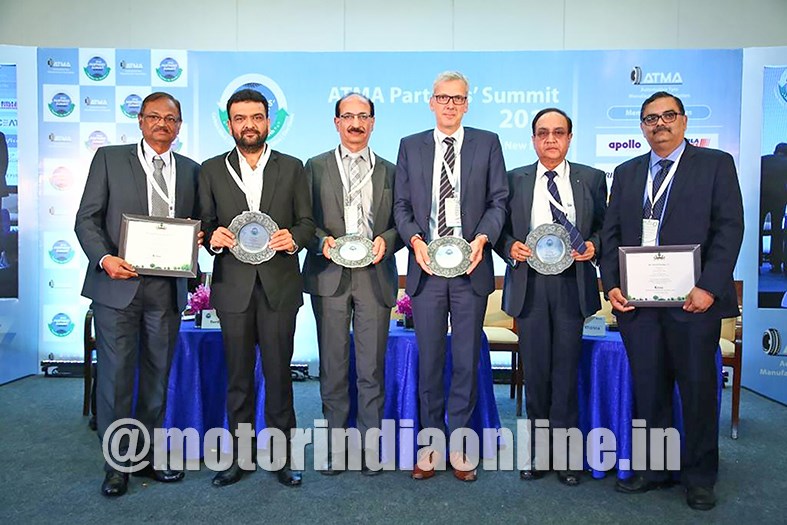This year’s summit assumed more importance as it was focused on key ingredients such as carbon black, zinc oxide, rubber chemicals and silica
There needs to be greater engagement between the tyre industry and raw material partners with a view to collectively build on a more sustainable ecosystem and respond to the emerging challenges. This was the clarion call at the ATMA Partners’ Summit 2019, organised by Automotive Tyre Manufacturers Association (ATMA) on October 16, 2019 in New Delhi. The 4th edition of the event witnessed the participation of senior management from the tyre industry and its raw material partners. This year’s summit assumed more importance as it was focused on key ingredients such as carbon black, zinc oxide, rubber chemicals and silica.
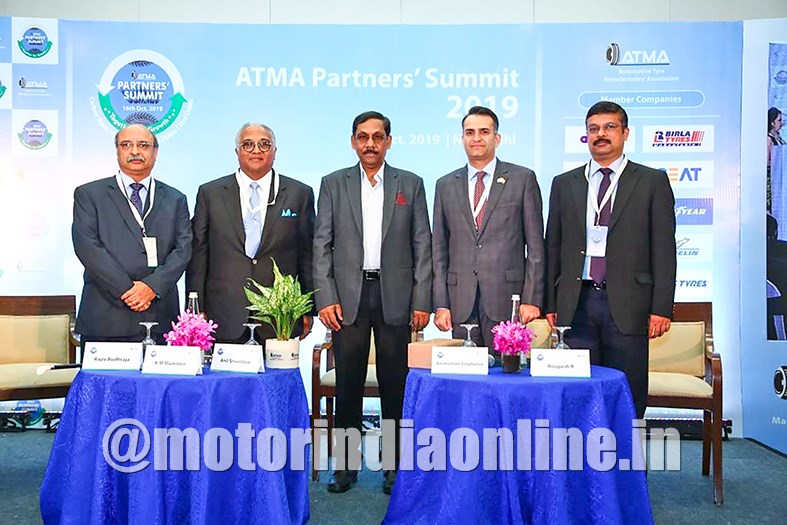
“The ATMA Partners’ Summit celebrates the long-standing and time-tested relationship between the tyre industry and its raw material partners. We have centred this year’s deliberations on the environmental impact of operations,” said Roopesh R, Convener, ATMA Supply Chain and Resources (SCR) Group, in his welcome address.
“Both materials and technology need to move in the trajectory of reducing our environmental footprint,” he added. The chief guest on the occasion, Anil Srivastava, Principal Consultant and Mission Director, Mission on Transformative Mobility, NITI Aayog, stated: “India’s growth story is intact. India has retained its world’s fastest-growing economy tag according to a recent report by the International Monetary Fund (IMF). We aspire to be a $5 trillion economy by 2024-25. We need to move from a consumption-led economy to a manufacturing economy to reach India’s full potential. Value-addition is the key to become a manufacturing economy which will lead to job creation and improve ease of doing business. India’s size and scale is an opportunity to be tapped.”
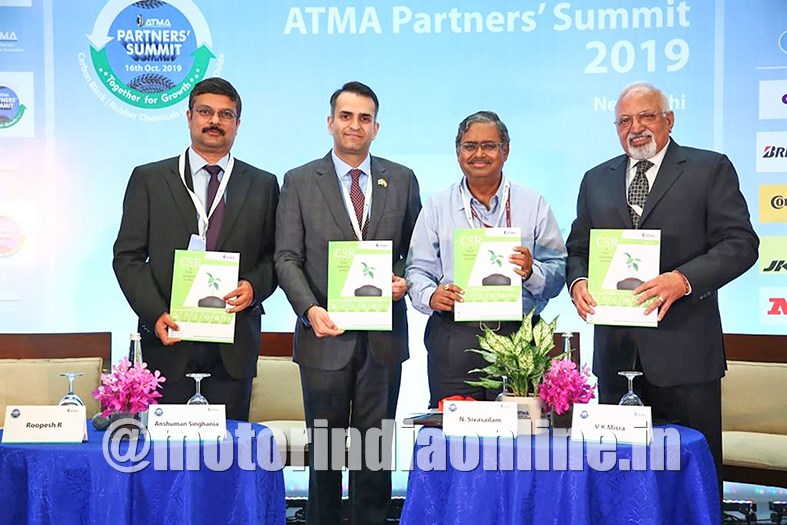
In his keynote address, K.M. Mammen, Chairman, ATMA, said: “ATMA Partners Summit is unlike any other industry conclave. The presence of so many raw material partners exchanging notes with the tyre industry so as to make the entire sector globally competitive makes this a special event with few parallels in Indian industry. The industry is in urgent need to take a re-look at materials and processes and bring in new technologies to achieve sustainable manufacturing. The collaboration between the industry and raw material partners assumes all the more importance in this regard.”
Welcoming N. Sivasailam, Special Secretary (Logistics), Government of India, Anshuman Singhania, Vice Chairman, ATMA, said: “There is little doubt that high logistics cost has been impacting price competitiveness of the Indian industry; tyre companies being no exception to the same.”
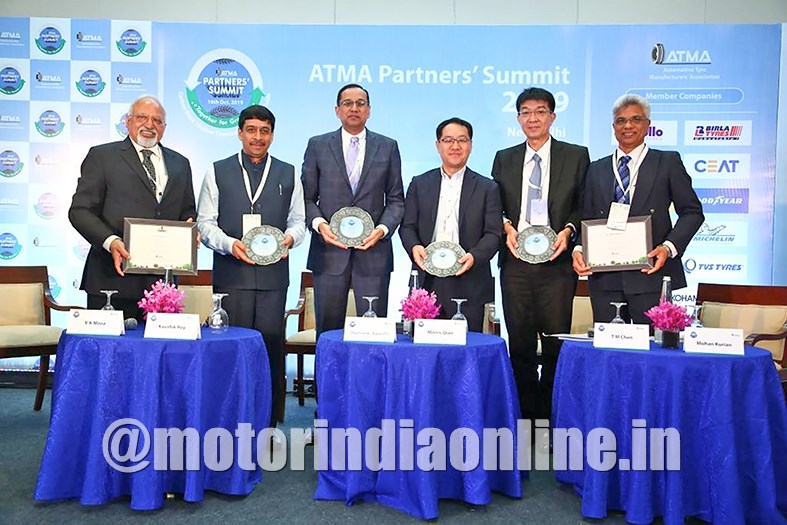
Quoting official figures, he added: “The cost of logistics in India is about 14% of the country’s GDP which is far higher as compared to other countries. We highly appreciate the government’s target to reduce it to 9% in the coming years. Without tyres, logistics can’t be comprehended in India; hence tyres and logistics are closely interlinked. One of our major targets is reduction of logistics cost as a percentage of business turnover. However, that should not be construed as shrinking of the logistics sector. On the contrary, logistics need to be made much more competitive since high logistics cost impacts competitiveness of domestic goods in the international markets. As India aspires to be a $5 trillion economy in five years, the size of the logistics sector will more than double to $500 billion. Multimodality of logistics is the need of the hour.”
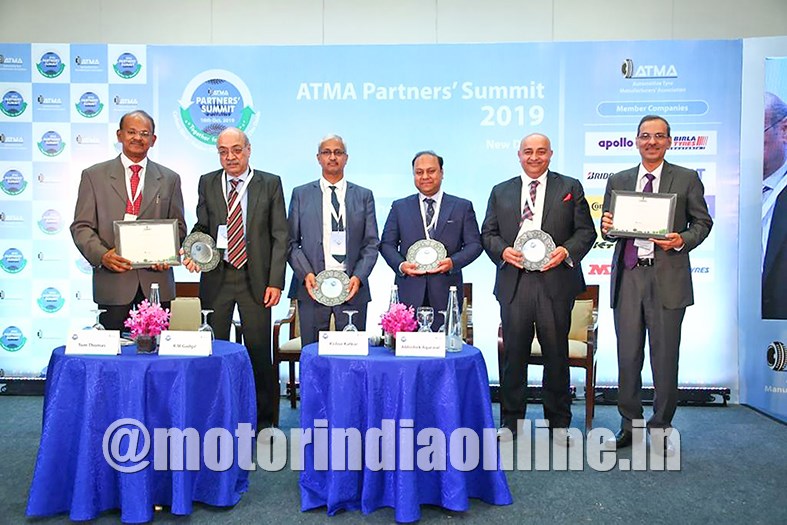
On this occasion, awards for tyre safety were presented to those organisations which collaborated with ATMA in spreading the message of tyre care and safety. The Tyre Safety Corporate Partner Award was presented to Indian Oil. The Training Partner Award went to JP Research and Satyug Darshan Institute of Engineering and Technology (SDIET), Faridabad.
A tyre safety poster was also unveiled on this occasion, explaining tread wear indicator (TWI). ATMA plans to spread awareness on TWI in collaboration with the Ministry of Road Transport and Highways. Further, Sivasailam released a compendium on the corporate social responsibility (CSR) activities being undertaken by ATMA members. Industry speakers and panelists travelled from far off places to be a part of the summit and add to the width and depth of deliberations.
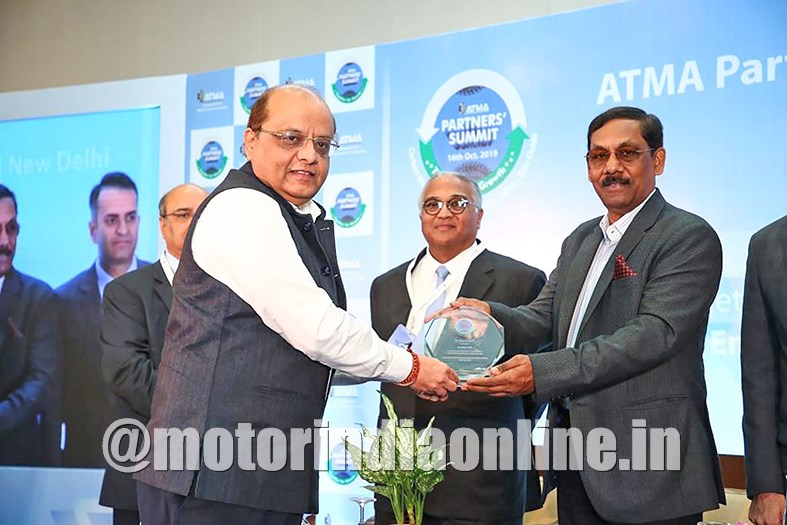
Four experts made a presentation each. Kaushik Roy, Managing Director, Phillips Carbon Black Ltd., spoke about carbon black; Bhuwan Purohit, WTD and COO, Rubamin Ltd., made a presentation on zinc oxide; R.M. Gadgil, President – Marketing, NOCIL Ltd., highlighted the importance and role of rubber chemicals; and Darshak Shah, Managing Director, Madhu Silica, spoke about silica.
Besides ATMA members, top managers of a host of raw material partners, both national and international, were present on the occasion. Some of these companies included Phillips Carbon, Birla Carbon, Orion, Continental Carbon, Rubamin, NOCIL, Acmechem, TWC, OCCL, Madhu Silica, Gujarat Multi Gas Base Chemicals, SOLVAY and Specialty Silica.
